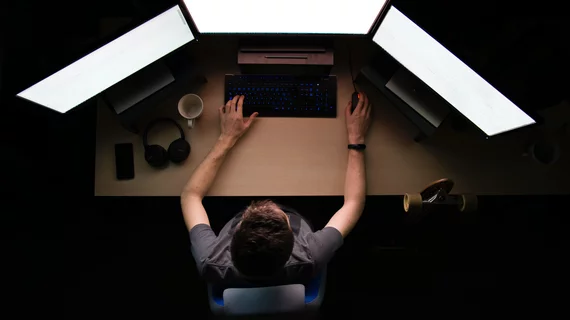Evident cyberattack brings Hawaii radiology practice to its knees
A multisite imaging operation in Hawaii has been turning away patients since Oct. 20 due to what its management initially described as unspecified “technical difficulties.”
Late on Thursday, a local TV news operation confirmed what some observers had speculated in online comments: The practice, Hawaii Radiologic Associates, or HRA, has been hit by hackers.
“We know that this has impacted patients and we know this is anxiety provoking,” Scott Grosskreutz, MD, tells ABC affiliate KITV-Channel 4. In some cases people have had … some care delayed.”
HRA is based on the Big Island and operates three or four sites. Until the trouble started, it served around 200 patients a day.
“We feel very terrible about this, and I want to deeply apologize to everybody who’s been impacted by this unfortunate event,” adds Grosskreutz, who has been with the practice for more than 29 years and is a past president of the Hawaii Radiological Society.
Other news outlets in the area have compiled troubling accounts from patients affected by the situation, which has knocked out not only the practice’s computers but also its phones and website.
Providers, Patients Irked Over Non-Transparency
One patient tells Big Island Now he’s repeatedly tried calling for results of an abdominal ultrasound performed Oct. 14, to no avail. The resident says his doctors need the findings to figure out what’s causing painful kidney issues that seem related to such alarming symptoms as dehydration and drastic weight loss.
“Nobody has contacted me,” the patient tells the news site. “I’m getting sicker and sicker and not able to turn this around. And what if other people are like me, or worse?”
Big Island Now also reports Hawaii Radiologic Associates is a for-profit company.
Meanwhile West Hawaii Today is reporting that providers, like patients, are frustrated over what they see as a lack of transparency from HRA.
The outlet quotes internist Pradeepta Chowdhury, MD, as saying he’s stopped referring patients to the practice because they’ve sent him no communication at all.
This is especially unfortunate, he adds, because “they are colleagues, and they should at least have the courtesy to let everybody know that they have an issue, this may be the issue, and when it might be fixed.”
Like other referrers, Chowdhury has been directing patients to Hilo Medical Center for imaging. West Hawaii Today confirms the hospital has seen an increase in imaging volumes since Oct. 20.
A Possible Case of Ransomware
A West Hawaii Today reader offers what sounds like an educated guess as to the nature of the disaster.
“Two weeks of no website, phone or computers sounds fishy,” the reader writes in a comment box. “Sounds to me like they were probably affected by ransomware and have lost access to all their files and customer data. They probably cannot afford the ransom price and/or had inadequate security controls and offsite backups in place to be able to recover older versions of the files.”
In any case, West Hawaii Today reports hearing from the stricken practice’s executive director, Ryan Parnell, albeit indirectly.
“Upon learning of the disruptions, HRA immediately responded to secure its systems and commence an investigation into the nature and scope of the disruption,” Parnell told the Hawaii Tribune-Herald via email. “We anticipate being down another week.”
KITV-4 item here, Big Island Now coverage here, West Hawaii Today article here.

